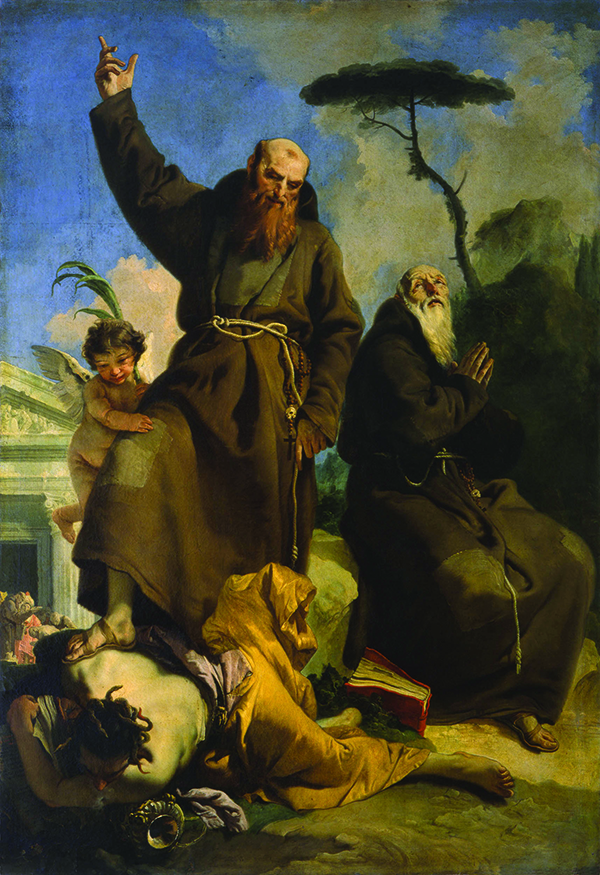
February saint: St. Joseph of Leonissa
Holiness and courage go together, and that is very evident in the life of a little-known saint, Joseph of Leonissa. During his 56 years, his untiring efforts at evangelization brought comfort and the promise of salvation to many.
Joseph was born Eufranio, the third of eight children in the town of Lionissa (in present day Tuscany) in 1556. Even as a child, he showed a preference for things religious, setting up small altars at home where he persuaded his young companions to pray with him.
He was educated by his uncle, who secured for him the promise of a nobleman’s daughter in marriage. However, when he was 16, Joseph fell ill with a fever. He managed to recover but had no intention of pursuing the life his uncle had planned for him. Without his guardian’s knowledge, he instead joined the Capuchin reform of the Franciscan Order, spending his novitiate near the town of Assisi.
Just as he had been known for his religiosity as a child, he was also known within his order for his remarkable abstinence. He denied himself hearty meals and comfortable quarters.
Making his profession in the Capuchin Order in 1573, he took the name Joseph. By 1581, his gift for preaching had become evident, and he was issued patents to preach by the Capuchin general vicar. Joseph then proceeded to visit the most remote regions of Umbria, Italy, with just a mission crucifix tucked in his cincture. He undertook an intensive evangelization of the poor.
Because of his deep prayer life and preaching success, he was next sent with some companions to Constantinople. There he was assigned to act as chaplain to some 4,000 Christian slaves who worked in the penal colony of Qaasim-pacha. They settled in a derelict house that had once been the St. Benedict High School and proceeded to minister to the captive Christians. Conditions were brutal and inhumane, but the Capuchin’s ministry was nonetheless solicitous and successful. When the plague broke out, it was the friars who took upon themselves the care of the sick and dying.
Their life of austerity and holiness, as well as Joseph’s preaching, soon attracted the attention of the Turks. Joseph was thrown into prison but was later released at the behest of a Venetian. Seeking the right of conscience for anyone converted to the Christian faith, Joseph then decided to approach the sultan himself. He was immediately arrested, tortured and sentenced to death. According to legend, it was an angel that eventually set him free.
Joseph then returned to Italy, where he continued to preach and care for the poor. When he became deathly ill, he asked to be returned to Leonissa to bid his family farewell. Dying in 1612, he was canonized in 1746. His feast is Feb. 4.
Sources for this article include:
catholicnewsagency.com/saint/st-joseph-of-leonissa-137
franciscanmedia.org/saint-of-the-day/saint-joseph-of-leonissa/
newadvent.org/cathen/08521b.htm

